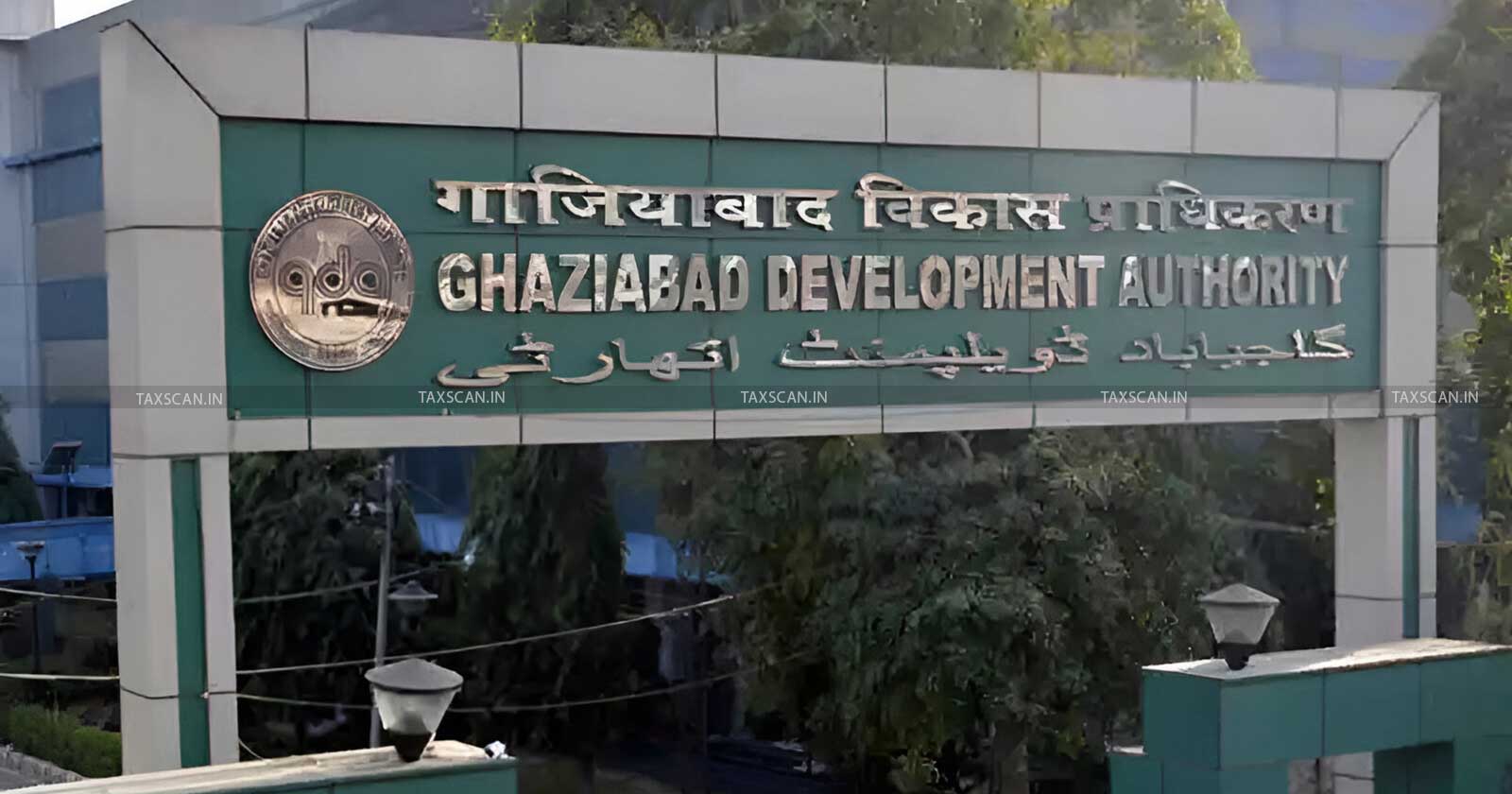Ghaziabad Development Authority Imposed unfair Terms on allottees of EWS Housing Scheme: NCLAT Imposes 5% Penalty [Read Order]
The bench held that CCI had imposed a penalty of 5% of the average turnover/receipt from the proceeds of only services for the development

NCLAT – NCLAT New Delhi – Ghaziabad Development Authority – Taxscan
NCLAT – NCLAT New Delhi – Ghaziabad Development Authority – Taxscan
In an appeal filed by Ghaziabad Development Authority ( GDA ) challenging the Competition Commission of India's ( CCI ) order, the National Company Law Appellate Tribunal ( NCLAT ) of New Delhi bench upheld the findings of CCI, and held that the 5% penalty imposed was reasonable to deter similar conduct in the future.
The Appellant filed the appeal under Section 53 (b) of the Competition Act, 2002 for challenging the order dated 28.02.2018 passed by the Competition Commission of India ( CCI ) under Section 27 of the Competition Act.
The CCI found that GDA unilaterally increased the price of flats and imposed arbitrary and unfair terms on allottees from the economically weaker sections of society. The conduct of the Appellant was found to constitute an abuse of its dominant position in the market for the provision of services related to the development and sale of low-cost residential flats under affordable housing schemes in Ghaziabad, thereby violating Section 4(2)(a)(i) of the Competition Act.
GDA was constituted under Section 4 of the Uttar Pradesh Urban Planning and Development Act, 1973 and engaged in the development and sale of real estate in Ghaziabad and is duly empowered to acquire, hold, and dispose of land while undertaking various development activities within the region. CCI erroneously directed the Director General ( DG ) to conduct an investigation based on an order dated 02.02.2017 issued under Section 26(1) of the Competition Act.
Transform GST Learning: Master Sections Faster with Memory Power- Click here to know more
Merely being in a dominant position as per Section 4 of the Competition Act does not constitute a contravention unless there is an abuse of that position. For abuse to be established under Section 4(2)(a)(i) of the Competition Act, there must be evidence of unfair or discriminatory conditions imposed on the purchase or sale of goods or services. Moreover, the Appellant obtained consent from several allottees regarding this adjustment in pricing.
The activities undertaken by GDA, such as land acquisition and property sales, are commercial in nature and can also be performed by private entities; thus, GDA qualifies as an 'enterprise' under the Act.
Only because the scheme was accessible to individuals outside Ghaziabad does not justify categorizing Delhi NCR as a single relevant geographic market. The relevant geographic market is defined as an area where goods or services are interchangeable under similar competitive conditions.
Even if there is a modest price increase in Ghaziabad, consumer preferences are influenced by external factors such as transportation costs when purchasing EWS flats. The so-called 'exit option' does not support GDA's position and instead it exemplifies a 'take it or leave it' approach, which is characteristic of an abuse of dominance. The penalty imposed by CCI that is 5% of average turnover, is not reasonable given its objective of deterrence and considering no mitigating factors were presented during proceedings.
Observations:
After examining the elements listed in Section 19(4) of the Act, the Tribunal came to the conclusion that GDA had a dominating position in the relevant market after noting that consumers in the relevant market were primarily dependent on GDA. Furthermore, it was discovered that GDA violated Section 4(2)(a)(i) and (ii) of the Act by imposing unfair conditions and prices on the Scheme's allottees, abusing its dominant position.
Transform GST Learning: Master Sections Faster with Memory Power- Click here to know more
The Tribunal observed that the Appellant raised the price of EWS apartments without providing a good reason, which may be interpreted as an abuse of GDA's hegemony. It may be argued that the appellant abused its dominant position in the relevant geographic market by raising the price of the EWS apartments from Rs. 2 lakhs to Rs. 7 lakhs without any enabling provisions, citing the contractor's miscalculation of the project's cost and the project's increasing cost over time.
The Tribunal, which was made up of Mr. Naresh Salecha, a technical member, and Justice Rakesh Kumar Jain, a judicial member, noted that the CCI has the authority to apply a necessary penalty up to the maximum amount allowed by the Competition Act. It stated that the CCI's only choice is to apply a punishment in order to prevent the appellant or other like players from repeating the incident in the future.
While dismissing the appeal, the bench held that CCI had imposed a penalty of 5% of the average turnover/receipt from the proceeds of only services for the development and sale of low-cost residential flats in the affordable housing scheme for EWS for the last 3 relevant years.
To Read the full text of the Order CLICK HERE
Support our journalism by subscribing to Taxscan premium. Follow us on Telegram for quick updates


